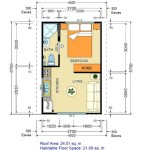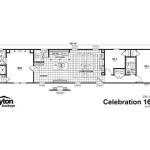Essential Aspects of Off Grid Living Plans
Embracing off grid living requires meticulous planning and consideration of various factors. Here are some essential aspects to ponder:
Site Selection
Choosing a suitable location is paramount. Consider factors like terrain, accessibility, water availability, and proximity to resources. Evaluate potential risks such as wildfires, flooding, and extreme weather events.
Energy Sources
Off grid living necessitates reliable energy sources. Explore options like solar, wind, hydropower, and geothermal. Assess your energy needs thoroughly and invest in a system that meets them while being environmentally sustainable.
Water Management
Water is essential for survival. Plan for water collection, filtration, and storage. Consider rainwater harvesting, well drilling, or filtration systems. Ensure you have ample water for drinking, cooking, hygiene, and irrigation.
Waste Disposal
Responsible waste management is crucial. Implement composting systems, install septic tanks, or consider incinerators. Adhere to local regulations and minimize environmental impact.
Food Security
Growing or sourcing food is essential. Establish a garden, raise livestock, or explore partnerships with local farmers. Plan for seasonal variations and consider food preservation techniques.
Shelter
Building an off grid home requires planning. Consider factors like insulation, ventilation, and materials. Utilize sustainable building practices and incorporate passive solar design to reduce energy consumption.
Security and Privacy
Off grid living often involves isolation. Implement security measures like fencing, alarms, and self-defense strategies. Respect the privacy of neighbors and establish clear boundaries.
Emergency Preparedness
Plan for emergencies by stockpiling essential supplies, establishing communication methods, and having a medical kit. Develop evacuation plans and maintain a network of support.
Financial Stability
Off grid living often requires significant upfront costs and ongoing maintenance. Create a realistic budget, explore income-generating activities, and consider financial assistance programs if necessary.
Legal Considerations
Ensure compliance with local building codes, zoning laws, and environmental regulations. Secure property ownership and obtain necessary permits. Consider forming a homeowners association for community governance.
Community Involvement
While off grid living may involve isolation, it's still beneficial to foster connections with neighbors and the surrounding community. Participate in local events, establish trade networks, and seek support when needed.
Continual Learning and Adaptation
Off grid living is an ongoing journey that requires adaptability and a willingness to learn. Stay informed about advancements in technology, sustainable practices, and community resources. Embrace challenges as opportunities for growth.

Off Grid Home Blueprints Plans Ideas Picture Pertaining To The Best Of Small Pl Tiny House Blog New Floor

Modern Off Grid House In Victoria By Modscape

Off Grid Cabin Floor Plan Archives Old World Garden Farms

10k Diy Off Grid Solar Tiny House

Simply Green Plan

Beautiful Off Grid Home Plans Design Garden Architecture Blog

The Off Grid House Unbox Design Arco

Map Of Our Off Grid Homestead Is Ready Byexample Com

3 Bedroom Traditional House Plans Off Grid Map

Wanna Get Away 10 Tiny House Plans For Off Grid Living Dfd Blog








